
Nelson and Fanny Grande in front of a billboard announcing A+, their new broadcast streaming service. Photo courtesy Avenida Entertainment Group.
Comedian, actor and film producer John Leguizamo had much to say about Latinx representation in the television industry at the most recent Emmy Awards. While he lauded the five Latina nominees (and one winner, Liza Colón-Zayas), his more pointed remark touched on the entertainment industry's continued exclusion of Latinos in leading on-screen, off-screen, and executive leadership roles.
An L.A.-based couple who’ve grown impatient with the well-documented sad reality of Latino underrepresentation in movies and TV shows have done something about it. Their creation? A+, pronounced “A Plus,” a broadcast streamer that they describe as “a premier destination for English-language content that reflects the vibrant diversity and culture of the American Latino community.”
Fanny and Nelson Grande, two Latinos with long careers in film and TV, have taken on a brand-new role: founders of a groundbreaking streaming platform dedicated to showcasing the rich tapestry of Latino stories and voices.
More than three years in the making, A+ is the latest offering of their parent company, Avenida Entertainment Group, a one-stop shop for filmmakers and other creatives. Founded eight years ago by Fanny, the company’s CEO and co-founder, and Nelson, president and co-founder, Avenida began as a resource for filmmakers looking to finance their projects via crowdfunding.

Their next step was to build a production company dedicated to bringing the projects to life, from pre-production to production and post-production. For a time, they even operated a full-fledged production studio in Echo Park, which has been dark since the recent lengthy writers' and actors' strikes.
This latest venture is their biggest bet yet, a bold attempt to capture the hearts, the souls, and, especially, the eyeballs of the demographic that has been at the forefront of movie ticket sales and television views over the past several years: Latinos.
How does it work? Much like the mainstream streamers. A+ offers a free-to-watch ad-supported model or an ad-free premium subscription, making it accessible to all who wish to explore Latino stories. It’s available as a web app, on Amazon Fire, Apple TV and Roku, as well as an iOS app for Apple and Google Play for Android devices.
But what, you ask, can people actually watch on A+? They’ve got Edward James Olmos “Chasing Wonders;” Danny Trejo’s action-thriller “1st Strike” and Andy Garcia in the dramatic “Ana.” Are comedies more your speed? Check out Annie Gonzalez in “Illegally Brown” or Jesus Trejo in “Care to Laugh.” A+ has shorts, series, docs and, of course, romance.
Speaking of romance, A+ is a true labor of love for Fanny and Nelson, a real-life couple who document their filmmaking journey on their respective Instagram, TikTok and Facebook accounts.
I caught up with the couple before their appearance at the recent L’ATTITUDE conference in San Diego. They were prepping for their panel, “Latino Founders of an Emerging Company,” pumped to announce their streamer’s launch and tell their story of struggle, strategy and, hopefully, success.
Responses have been edited for clarity and brevity.

Fanny Grande
Tell me about your journey in this industry and how you took on an entrepreneurial role?
Fanny Grande (FG):
I had been a successful actress in Venezuela, but when I came to the University of Colorado to study acting and directing, I wasn't cast in anything. I had a dean say to my face, ‘People are not going to believe it if you [a Latina] are in Shakespeare’s play.’ We do Shakespeare! I made my first short film to show that we can play any role. A friend who worked at Univision was our cameraman, and I cast a few talented friends from the local Denver theater company Centro Su Teatro. And that's how this entrepreneurship began. Instead of waiting for opportunities, I started to create my own, encouraged by one of my professors who said, ‘You just have to tell your own story.’

Nelson Grande
Nelson Grande (NG)
I grew up in Highland Park, and I got to see movies like “La Bamba” and “Reservoir Dogs” being filmed. Acting was something I wanted to do, wanting to play all the roles I saw growing up on TV. I trained, attended acting classes, and submitted myself for every role, but I wasn't getting the opportunities. I got one audition every three months, but the roles were the same: gang bangers, someone with an accent. Early in my career, I did take those roles because I’d take whatever opportunity I could get.
One did it for me: a big, popular LAPD show. I went for my audition, and 22 white guys and one white woman were like, ‘Hey, this is great, this is excellent.’ Then one asked, ‘Can you do it with an accent? And I'm like, ‘Why?’ I was told, ‘Well, because the guy, he's a Chicano from L.A.’
I'm like, ‘Guess what, guys, I have a freaking incredible thing to tell you… I'm a Chicano from L.A.! This is how I talk. And you know what, I have a brother who’s a cop and he’s Chicano, too! And he doesn’t speak like Speedy Gonzalez!’ I left and walked right out of there.
What led you to finally commit to doing something about it?
NG:
It was Fanny who opened my eyes. She's asked, ‘Have you seen your demo reel?’ It was full of characters with none where I had just my everyday speaking accent. Combined with the frustration and giving so much of myself to a system that wasn't working, Fannie and I got together to open up Avenida.
FG:
So that's when we decided to take the leap. I had produced shorts that had been shown at major film festivals, including South by Southwest, but I still could not get representation and could not move forward. I'm like, ‘What’s happening?’ People told me, ‘Well, it's because you have to do a feature.’ I was like, ‘How will I do a feature as single mom with two boys and ten jobs?’ So I discovered crowdfunding.

I wrote a movie called ‘Homebound’ and went to the community and said, ‘Help me transform how we're portrayed in the media.’ Through crowdfunding, I raised enough money to make the film, a feature with Enrique Castillo, Julia Vera and Jeremiah Ocanas, shot in Texas, which I directed and co-produced.
We finished the film, but we couldn't sell it, which still happens to many filmmakers. I returned to the community and said, ‘This movie you helped me make, nobody is buying it.’ So, people started requesting it at their local movie theater, and I started touring with it, and that's how we sold it.
At the time, I was at Nosotros, and many filmmakers and actors were like, ‘How are you doing this? Can you teach us?’ I was helping people on the side, coaching them on how to fundraise and self-produce, raising a lot of money quickly.
Nelson, whom I had known as a friend for a long time, was watching and asked, ‘Hey, what are you doing? You're giving this away for free.’ When I tell him I’m committed to this because I want to help, he says, ‘Let’s open a business that empowers the community, and then you won't have to have those other ten jobs.’ We opened Avenida eight years ago, and we've actually made a bigger impact on helping filmmakers.
It's opened many doors and has shown people how to build our entities and companies and take charge. We found that there's a way to do things outside of the system. As a community, we can get films funded and distributed. So far, we've helped raise millions of dollars for more than 400 projects.
NG:
We’re a company with a mission, but we're still a startup. But we knew that you must be an entrepreneur if you want to change things. We saw that there was a gap in the market. So, how do we fill this gap? It's been empowering filmmakers, educating audiences, and using technology. And now, with the A+ streamer, we connect the creative community to audiences eager to see themselves represented.

How did you fund A+?
FG:
To launch a streamer, you need a lot of money. We used some traditional VC (venture capital)-backed funding, which is very difficult for a Latino company. No matter how often we pitched this idea of our streamer [to them], an hour into the pitch, they’d be like, ‘Oh, so it's in English?’
So, we came up with doing a community round, going to the community for additional funding. It’s been crucial for us to have the community own a little piece of it so we can prove that there's demand in the market and, second, we want the community to build this with us. And that's been happening. Now, when people see the streamer, the VCs we'd been pitching to understand, ‘Oh, Latinos are American.’
What was the learning curve of putting together a streamer?
NG:
Initially, it was several years of research. Streaming and distribution is such a vast world of its own, it’s growing and constantly evolving. But also notably, it was surrounding ourselves with people, advisors, colleagues and folks already skilled in this.
We found some wonderful allies and colleagues who understand the mission, so combined with our few years of self-research and staying up to date with current market trends, we got it done. And looking back, even just a year ago, what we thought we knew is continuously evolving.
But we did the same thing with Avenida. We see the challenge, and it's not ‘Should we?’ It's ‘How do we approach this?’ because this is the current system and has not been working for us. So, sitting back and doing nothing was just not an option.
FG:
To keep advocating for Hollywood to change over and over and over, which we've been doing for what? 60 years? And things are worse than they used to be. To keep repeating the same actions and expect to change … isn't that the definition of insanity? For us, it's like, why are we waiting for a system to change? They don't have to change. They're already getting our money.
So, at the end of the day, we want to take enough of the marketplace so that Hollywood will have to pay attention. For that, we need the community to watch, we need the community to tell everybody else, and we need advertisers. But we've done the hardest part, which is to launch this beautiful platform.
What’s been the community’s reaction to A+ so far?
NG:
People are absolutely in love with it, and we're very proud of the product we've made. It's challenging, but it demonstrates the creativity that the Latino community has learned to take on with limited resources. It's a beautiful thing to see the films that are on our platform. We have some great films there. Don’t expect a lot of CGI, with things blowing up on your face. Some of these are independent films; there's a freaking story there. And there's heart to it, and you're like, wow, now this is filmmaking here, that speaks a lot to our community and the talent we hold. That’s precisely why we created our own space without barriers.
FG:
And that's how we're going to change the industry. Now is the time because Hollywood is in flux, and the economics of Hollywood don't make sense anymore. And now there's an opening because Hollywood is struggling and shifting. But Latinos have been creating excellent content for so little money for so long. We're trained, we’re ready.
How do you choose what to include on A+?
FG:
We wanted a curated space to represent what it is to be a U.S. Latino, the diverse spectrum of Latinidad. And we feel like we're very well suited for that. I'm from Venezuela, so I'm very close to both Caribbean and South American cultures. But I've also lived in the U.S. since I was 17. So, I feel very much an American, an American Latina.
NG:
I'm a Mexican Salvadorian, and I grew up in L.A., which is diverse and very Latino. Understanding my Mexican and Central American roots and being an American Latino has given me an advantage like Fanny's. We’re not saying we know all about Latinos. We understand that there's more to us. We are the community. We’re such a diverse group within ourselves.
FG:
On our team, we have Gen Z 'ers telling us what they want to watch. So, when people submit their content, or we license it, we say, even if it's not my cup of tea, will somebody watch this? There's content from Puerto Ricans and Cubans and Mexicans and Texans and whatever it is to be a Latino in the U.S.
Every single movie on our streamer is a little miracle. To be a Latino in this space and create a movie, a short film, or a documentary takes a miracle. We know what it takes for a client or for somebody to make a project. We have worked with so many people in this space. Because we’ve fundraised so much money for many projects, we've developed a sensibility for what people want to watch. And we know the ones that will do well.
What is your favorite content on the streamer?
NG:
There's a wonderful documentary called “My Name is Pedro” about an adult educator who grew up in what was called the Special Education system when he was a child. He grew up still struggling with some of these learning abilities as an adult, but he's learned to embrace them and adopt a more non-traditional method of doing things.
FG:
I must push our own Avenida films. “Quinceañera” won every festival we entered. We have another called “My DACA Life” about Dreamers. I'm really excited about one that we didn't make: “Grand’pa Knows Best.” It’s a Claymation series and it's brilliant. It's about a filmmaker named William D. Caballero who gets phone calls from his grandfather, and he uses those phone calls and animates them into an advice column. It really fills your heart.
NG:
We license many things directly from filmmakers. Our team reviews the submission and checks to ensure it’s in show format. Filmmakers can reach out to us directly at submissions@avenida.tv.
What can the community do to support the streamer?
FG:
We need people to download the app now and start watching because we want to show advertisers that there's an audience and, of course, that they can advertise with us! Pretty much where you get Netflix, you can get A+.
NG:
They can watch it on iOS, Android, or smart TVs, Apple TV, Roku, or Amazon on Fire TV. It’s available on the major app stores. So people are able to watch us on any screen that they desire. The Latino community is on a continuous upward trend. Right now, one in every four young people in this country is a Latino or a Latina. So, the future of this country, quite literally, is Latino. We're also the alpha consumers of media. We're everywhere, on all the TVs and all the devices. So, creating this now rather than continuing to ask for inclusion and our seats at the table is increasing our influence. I'm mostly excited about getting the streamer to a point where we're no longer fighting for our place. That way, we can focus on filmmaking and creating incredible content.
FG:
We're committed to creating an environment where Latinos are no longer a niche, that we're seen and respected as mainstream because, at the end of the day, we consume more content than any other group. We're maintaining many of these Hollywood studios! So, instead of seeing us as the other, that we don't belong, we are committed to creating our community as part of the mainstream, if not the mainstream itself.

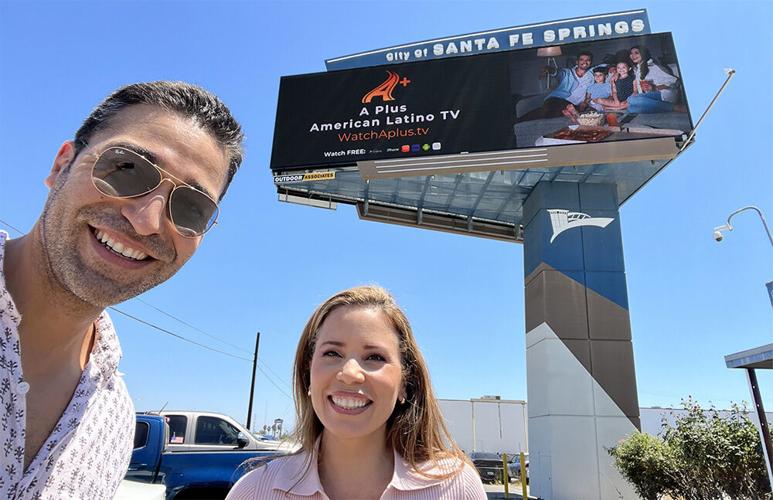
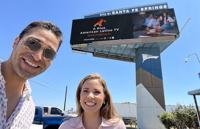
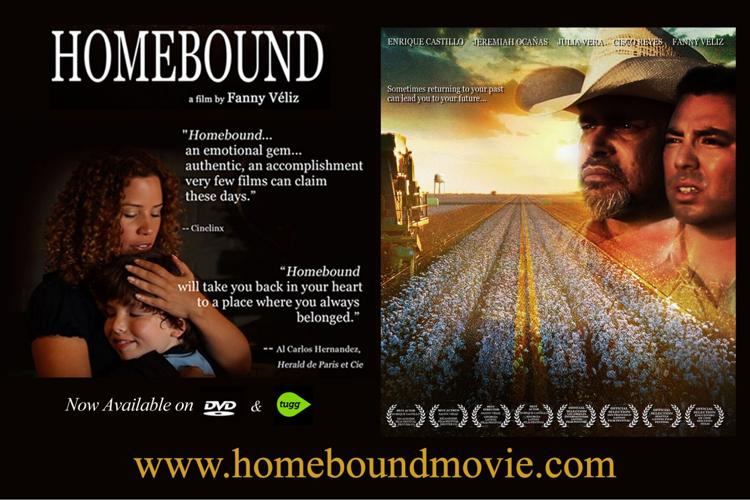






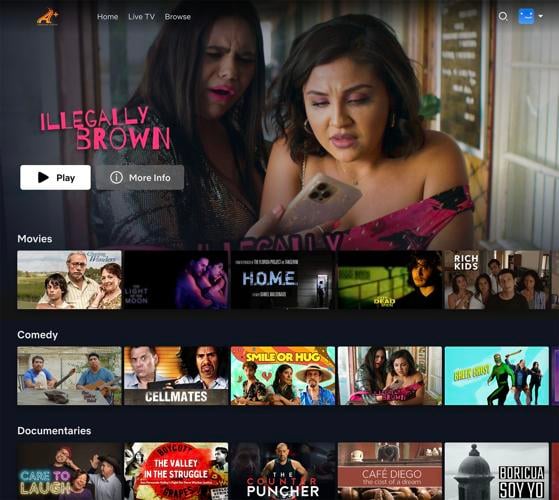
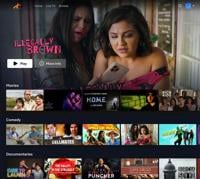

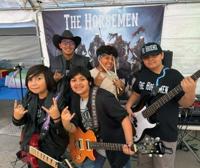



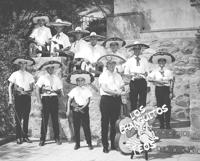


(0) comments
Welcome to the discussion.
Log In
Keep it Clean. Please avoid obscene, vulgar, lewd, racist or sexually-oriented language.
PLEASE TURN OFF YOUR CAPS LOCK.
Don't Threaten. Threats of harming another person will not be tolerated.
Be Truthful. Don't knowingly lie about anyone or anything.
Be Nice. No racism, sexism or any sort of -ism that is degrading to another person.
Be Proactive. Use the 'Report' link on each comment to let us know of abusive posts.
Share with Us. We'd love to hear eyewitness accounts, the history behind an article.